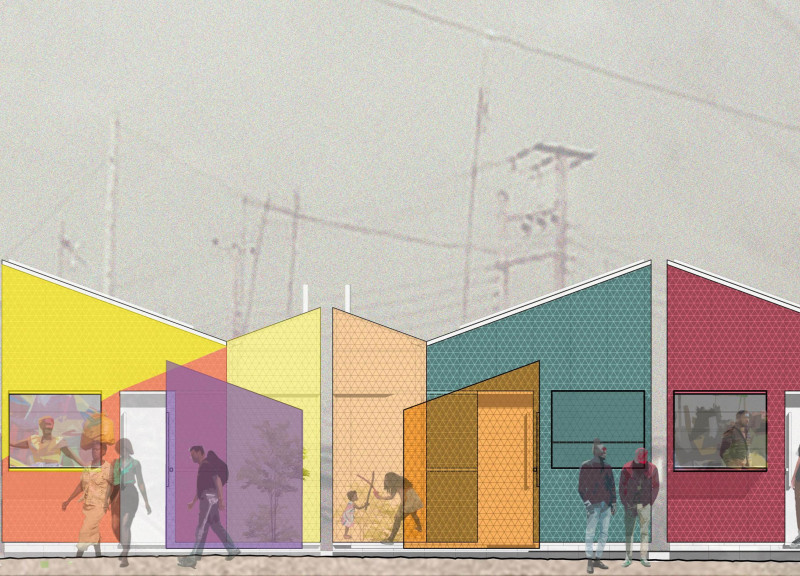5 key facts about this project
The Kibera Microhome is located in Kibera, Nairobi, one of the largest urban slums in Africa. Designed to confront the challenges of high density and scarce resources, the microhome focuses on safe and functional living. It presents a thoughtful concept that maximizes space in just 25 square meters, making efficient use of available resources and fostering community interaction among residents.
Spatial Efficiency and Flexibility
The layout of the microhome is carefully structured to optimize both private and shared spaces. This design allows residents to adapt their environment to suit their daily needs. With multiple entry points, security is enhanced, creating a buffer against external threats. This arrangement encourages privacy for individuals while simultaneously building a sense of community among the occupants.
Integration of Outdoor Spaces
Outdoor areas are an essential part of the microhome’s design. They provide spaces for gardening, cooking, and socializing, allowing residents to extend their living space outside. This connection to nature improves living conditions and encourages interaction with neighbors. The inclusion of a small shop at the front allows residents to engage in commerce, providing income opportunities and supporting the local economy, which is vital in an area facing economic challenges.
Sustainable Systems and Materials
The project utilizes concrete blocks for the foundation, ensuring stability in a challenging environment. Structural insulated panels are used to create the building's thermal envelope, promoting energy efficiency vital for off-grid living. Natural light and ventilation are maximized through a skillion roof and strategically placed louvre windows, contributing to a comfortable and livable indoor environment. Additionally, rainwater collection and solar panels enhance sustainability, allowing residents to manage resources effectively.
Innovative Waste Management
The design also includes an aerobic composting system to handle waste. This feature converts refuse into nutrient-rich water suitable for gardening. By managing waste in this way, the microhome addresses sanitation and promotes a sustainable lifestyle. Growing food on-site not only supports food security but also helps to foster a sense of self-sufficiency among residents.
The Kibera Microhome combines these elements to create a living space that meets essential needs while enriching the daily lives of its occupants. It serves as a practical model for resilient living in difficult urban conditions.























































